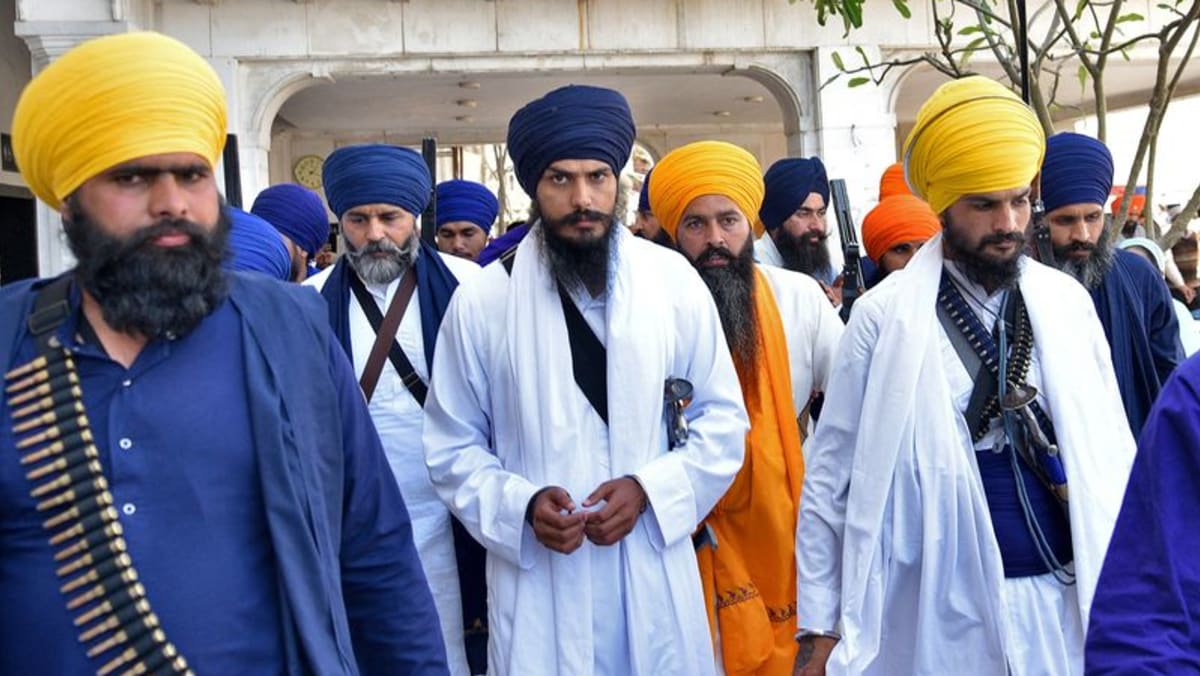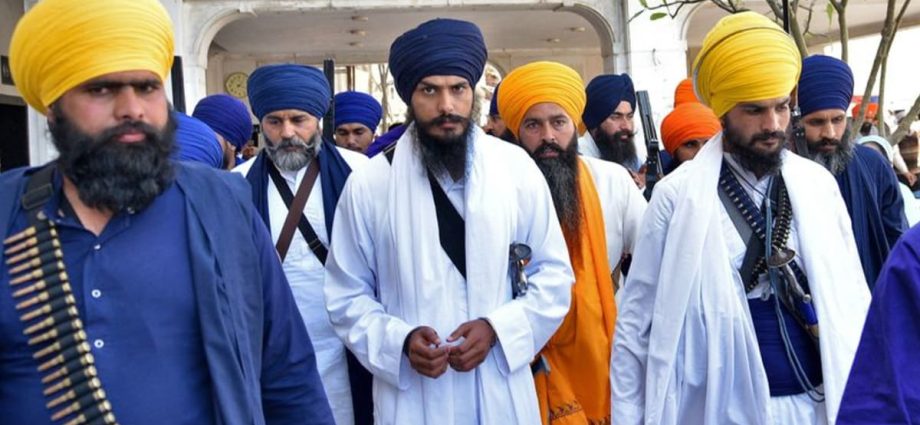
NEW DELHI: Indian police have arrested Sikh separatist Amritpal Singh after hunting for him for more than a month, a police statement said on Sunday (Apr 23).
Singh, a preacher in the northwestern state of Punjab where Sikhs are in the majority, has revived talk of an independent Sikh homeland and stoked fears of a return to violence that killed tens of thousands of people in the 1980s and early 1990s.
Punjab suffered a bloody insurgency in the 1980s that led to the killing of India’s then-Prime Minister Indira Gandhi by her Sikh bodyguards at her official residence in New Delhi. Her killing triggered bloody rioting by her Hindu supporters against Sikhs in northern India.
Police have accused Singh and his supporters of attempted murder, obstruction of law enforcement and creating disharmony and said he had been on the run since mid-March.
NATIONAL ATTENTION
Singh captured national attention in February when hundreds of his supporters stormed a police station in Ajnala, a town in Punjab state, with wooden batons, swords and guns to demand the release of a jailed aide.
“Amritpal Singh (has been) arrested in Moga, Punjab. Further details will be shared by Punjab Police,” the state police said on Twitter, urging the public not to spread fake news.
A Sikh religious leader, Jasbir Singh Rodde, said Singh surrendered to police after offering morning prayers at a Sikh shrine in Moga. Police then arrested him and took him away, he said.
Authorities have deployed thousands of paramilitary soldiers in the state and arrested nearly 100 of his supporters. Singh’s wife was prevented from leaving India last week.
Very little was known about Singh until he arrived in Punjab state in 2022 and began leading marches calling for the protection of rights for Sikhs, who account for about 1.7 per cent of India’s population.
Singh claims to draw inspiration from Jarnail Singh Bhindranwale, a Sikh militant leader accused by the Indian government of leading an armed insurgency for Khalistan in the 1980s. Bhindranwale and his supporters were killed in 1984 when the Indian army stormed the Golden Temple, the holiest shrine in the Sikh religion.
Singh has styled himself after Bhindranwale, with a long, flowing beard. He also dresses like Bhindranwale.
“PUNJAB’S HEIRS”
Singh also heads Waris Punjab De, or Punjab’s Heirs, an organisation that was part of a massive campaign to mobilise farmers against controversial agriculture reforms being pushed by Prime Minister Narendra Modi’s government.
The legislation triggered a year of protests that began in 2020, as farmers – most of them Sikhs from Punjab state – camped on the outskirts of New Delhi through a harsh winter and devastating coronavirus surge. The protests ended after Modi’s government withdrew the legislation in November 2021.
Waris Punjab De was founded by Deep Sidhu, an Indian actor who died in 2022 in a traffic accident.
Singh’s speeches have become increasingly popular among supporters of the Khalistan movement, which is banned in India. Officials see it and affiliated groups as a national security threat. Even though the movement has waned over the years, it still has some support in Punjab and beyond – including in countries like Canada, the United States and the United Kingdom, which are home to a sizable Sikh diaspora.
Last month, supporters of the movement pulled down the Indian flag at the country’s high commission in London and smashed the building’s windows in a show of anger against the move to arrest Singh.
India’s Foreign Ministry denounced the incident and summoned the UK’s deputy high commissioner in New Delhi to protest what it called the breach of security at the embassy in London. The supporters of the Khalistan movement also vandalised the Indian Consulate in San Francisco in the United States.

